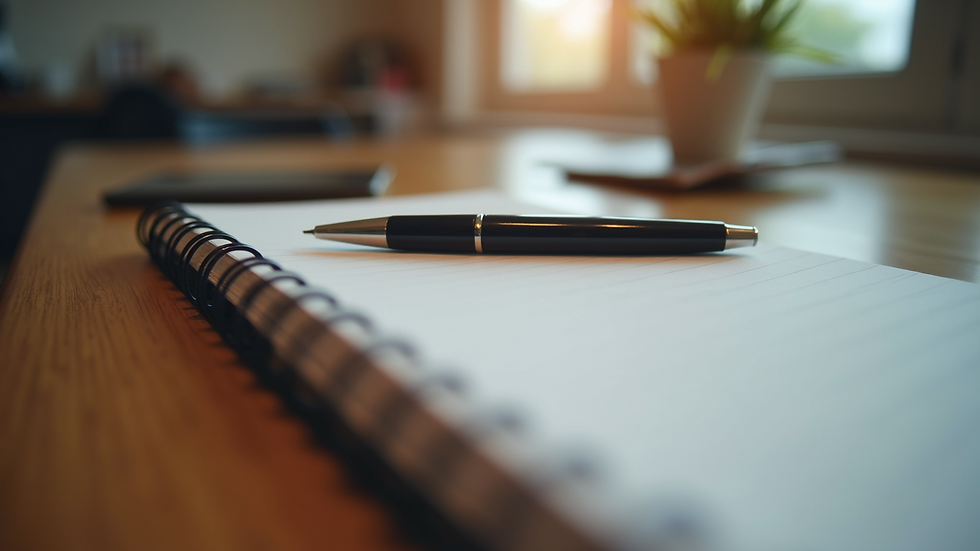Top Relaxation Techniques to Alleviate Stress
- thegreydirector
- Jul 21, 2025
- 4 min read
In today’s fast-paced world, stress has become a common issue for many people. Balancing work, family, and personal demands can lead to overwhelming feelings of anxiety and tension. Fortunately, there are various relaxation techniques available that can help alleviate stress, improve your mood, and restore your mental clarity. This blog will delve into some of the best stress relief relaxation methods you can try at home or on the go.
Understanding Stress Relief Relaxation
Stress relief relaxation refers to practices and techniques designed to reduce stress levels and promote a sense of calm and well-being. Engaging in these activities can have positive effects on both physical and mental health. Effective stress management can lead to improved overall health, enhanced productivity, and a greater sense of happiness. Incorporating relaxation techniques into your daily routine can help you manage stress more effectively.

Benefits of Relaxation Techniques
Relaxation techniques have numerous benefits for individuals dealing with stress. Here are some key advantages:
Improved Sleep Quality: Many stress relief practices help calm the mind, making it easier to fall asleep and enjoy deeper sleep cycles.
Enhanced Mental Clarity: Relaxation techniques can clear mental fog, leading to better decision-making and increased focus.
Lowered Blood Pressure: Reducing stress can result in lower blood pressure and a reduced risk of heart disease.
Reduced Anxiety Symptoms: Regularly practicing relaxation techniques can lessen anxiety and prevent panic attacks.
Overall Well-Being: Engaging in these activities can improve your mood and help you cope with challenges more effectively.

What are 5 Relaxation Techniques?
There are numerous methods to help you relax and manage stress. Here are five effective techniques you can easily try:
1. Deep Breathing Exercises
Deep breathing is a simple yet effective way to combat stress. To practice deep breathing:
Find a comfortable position, either sitting or lying down.
Close your eyes and take a slow, deep breath through your nose, allowing your abdomen to expand.
Hold the breath for a moment, and then exhale slowly through your mouth.
Repeat this process for several minutes, concentrating on your breath.
Deep breathing helps calm the nervous system, offering immediate relaxation.
2. Progressive Muscle Relaxation
Progressive muscle relaxation involves systematically tensing and relaxing different muscle groups in your body. Here's how to do it:
Sit or lie down in a comfortable position.
Starting with your feet, tense the muscles for a few seconds, then release.
Move up your body, targeting muscle groups like your calves, thighs, abdomen, and finally your facial muscles.
Take your time and notice the contrast between tension and relaxation.
This technique reduces physical tension and promotes overall relaxation.
3. Mindfulness Meditation
Practicing mindfulness meditation can enhance your ability to deal with stress by focusing on the present moment. To start:
Find a quiet space and sit comfortably.
Close your eyes and take a few deep breaths.
Focus on your breath or use a mantra to help keep your attention centered.
If your mind wanders, gently bring your focus back to your breath or mantra.
Even a few minutes of mindfulness meditation can significantly boost your mental state.
4. Yoga
Yoga combines physical postures, breathing techniques, and meditation to promote relaxation. Many people find yoga helps reduce stress and anxiety. A few beginner-friendly poses include:
Child’s Pose: A gentle way to stretch and relax.
Cat-Cow Pose: A dynamic stretch that promotes relaxation in the spine.
Corpse Pose: Perfect for deep relaxation at the end of your practice.
Consider joining a local class or using an online video to guide you through a session.
5. Nature Walks
Spending time in nature can have a calming effect on the mind and body. A nature walk allows you to connect with the environment and create moments of mindfulness. When walking:
Pay attention to your surroundings: the colors, sounds, and scents of nature.
Leave your phone behind to fully immerse yourself in the experience.
Focus on your breath as you walk, allowing any tension to dissipate with each step.
Even short walks in green spaces can contribute to a greater sense of well-being.

Incorporating Relaxation into Daily Life
Finding time for relaxation in your busy schedule is crucial. Consider incorporating short bursts of relaxation throughout your day. Here are some actionable recommendations:
Set Reminders: Use your phone or calendar to remind you to take breaks for deep breathing or mindfulness.
Create a Relaxation Ritual: Designate a specific time each day for relaxation activities, such as yoga, meditation, or reading.
Connect with Others: Share relaxation techniques with friends or family to encourage each other in stress management.
Limit Distractions: Create a calming environment by reducing noise and turning off screens when you engage in relaxation practices.
By intentionally prioritising relaxation, you can better manage stress and enhance your overall quality of life.
Resources for Further Learning
If you are interested in expanding your knowledge of relaxation techniques for stress, consider exploring books, apps, or online courses. Many resources are available that provide in-depth guidance and comprehensive programs. For example, you can check out thegreytherapycompanion.org for more insights into stress management.
Moreover, support groups or workshops focusing on stress management can also provide valuable tools and techniques to incorporate into your routine.
Final Thoughts on Stress Relief Relaxation Techniques
Finding effective ways to manage stress is essential for your health and happiness. Whether it's through deep breathing, yoga, or a walk in nature, the key is to find relaxation techniques that resonate with you. Remember, what works for one person may not work for another. Therefore, exploring different methods is crucial for discovering what best helps you alleviate stress.
As you integrate these relaxation techniques into your life, be patient with yourself. It may take time to notice the full benefits, but every small step you take towards relaxation contributes to your overall well-being. Prioritise self-care and dedicate moments to unwind, and you will likely see improvements in your ability to handle stress effectively.






Comments